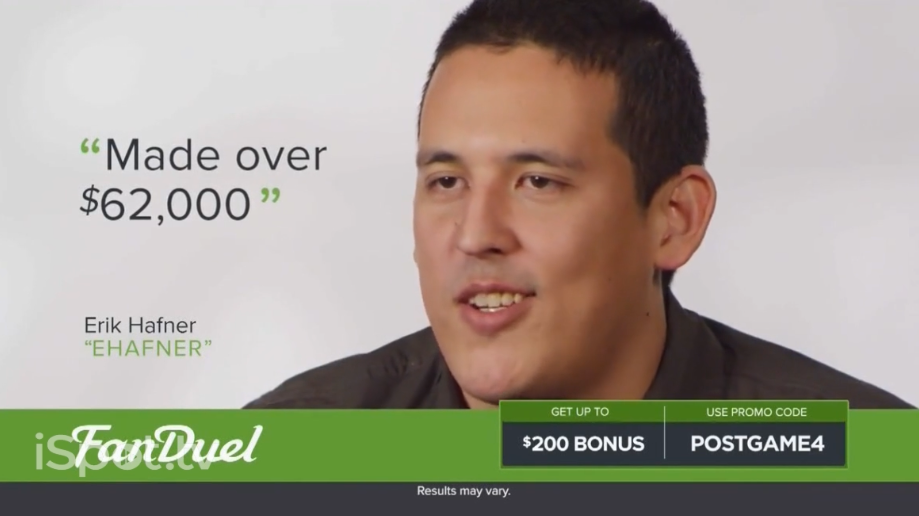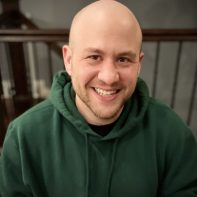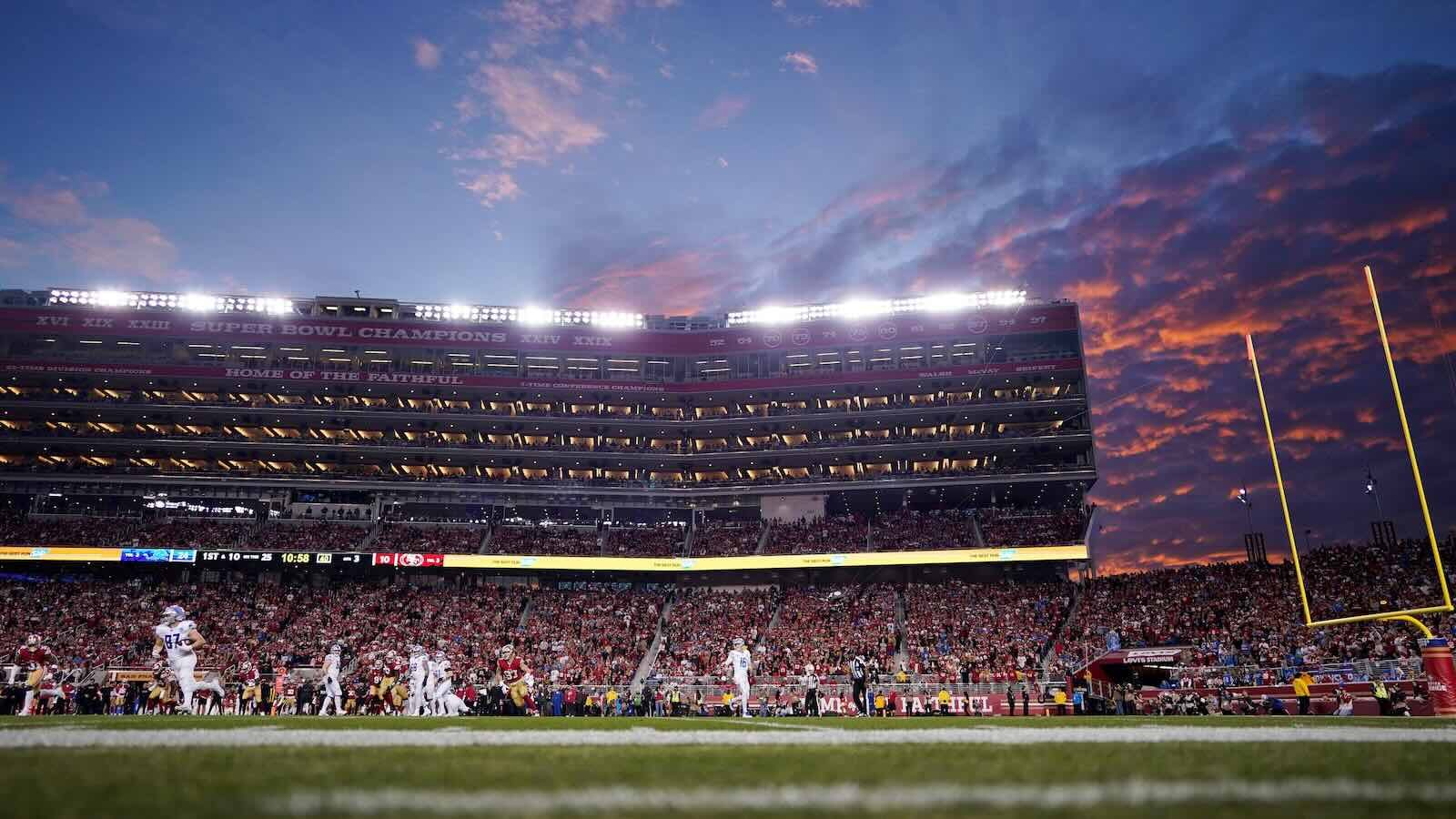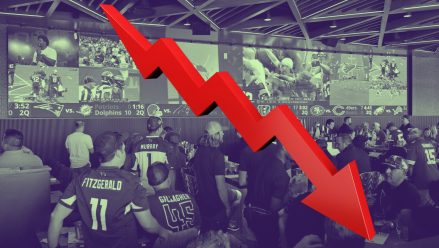In 2012, Erik Hafner of Southern California began playing daily fantasy sports (DFS) after pivoting from a whirlwind in poker. Three years later, he answered an email from FanDuel and eventually was featured as part of a national television campaign blitz for the company that was then in the DFS business, exclusively.
Come 2025, due to the current political climate and competing business interests, Hafner might have to leave the state if he wants to continue playing DFS contests. They are under threat in California after Attorney General Rob Bonta issued a sweeping legal opinion on July 3 that he considers pretty much all forms of DFS illegal in the state, under existing law.
“I did brainstorm potentially getting a place in Lake Havasu [in Arizona]” Hafner told InGame, when asked if he would move if DFS operators exited the state entirely. “I’m not sure if I would. Maybe I’d buy a secondary place and just go there on NFL weekends is what I was thinking. But I’ve got two kids and I’m pretty much rooted here in SoCal, so I think it would be difficult for me to move.”

The AG’s opinion is non-binding and advisory, and Gov. Gavin Newsom quickly registered his disagreement. Nevertheless the DFS community nationwide is on edge due to the uncertainty around where the winds may ultimately blow in California, which by itself is the world’s fourth largest economy and supplies a lot of liquidity to DFS contests across the country.
Hafner’s and the industry’s eyes are again on FanDuel (parent company Flutter Entertainment), whose business and valuable database was built on DFS, but these days is all-in on sports betting and iGaming within the U.S. FanDuel does remain active in the DFS realm, but it is on the rear burner, representing only about 2-3% of the company’s overall revenue pie, according to the 2024 annual financial report.
On July 3, a spokesperson for FanDuel’s chief rival, DraftKings, shared a full-throated rebuke of the AG’s opinion and indicated an intention to stay the course with DFS in California.
“DraftKings respectfully disagrees with the interpretation expressed with respect to peer-to-peer fantasy sports contests in the non-binding advisory opinion issued by the Attorney General of California,” DraftKings wrote in part. “We believe peer-to-peer fantasy sports contests, including Salary Cap, Pick 6 and Best Ball, are legal in California, and we intend to continue offering them — as we have done without challenge or issue for over 13 years.”
FanDuel, meanwhile, offered a more muted and vague response.
“We look forward to meeting with the attorney general’s office to talk through our next steps,” a company spokesperson said at the time.
“FanDuel has changed their focus and moved away from really large prize pools for daily fantasy, and moved towards sports betting more. That’s become the company that they are,” observed Al Zeidenfeld, a longtime DFS player and media presence based in Los Angeles who has written on fantasy sports for ESPN. “And DraftKings is trying to win on all fronts.”
That dichotomy among the members of the U.S. sports betting duopoly helps explain the contrast in the postures taken in the immediate wake of Bonta’s opinion, which arrived 18 months after a lawmaker requested it, and at the urging of well-funded, politically connected tribal groups.
In response to request for comment about possible enforcement action, Attorney General Bonta’s press office said “After reviewing the opinion, the California Department of Justice expects companies to come into compliance with the law. Any specific action beyond that is premature.”
The California tribes are fighting multiple battles at the same time right now against gambling or gambling-like products that might interfere with their tribal-state compacts, or their grip on the gambling industry in California. The tribes are battling against sweepstakes casinos in the legislature; against both prediction markets and cardrooms in the courts; and against DFS companies primarily through the attorney general’s office at present.
For DraftKings and FanDuel, entering California with legal sports betting and/or iGaming would be the ultimate prize in the U.S.
“FanDuel has been a ferocious fighter across the country to expand or maintain their map, and their passivity here speaks volumes,” said an industry insider who spoke on condition of anonymity. “Public and private statements look like DraftKings is going to fight, and FanDuel is going to roll their users in an effort to continue to bend a knee to the tribes. Remember, FanDuel built their business on selling a user base to investors in the pre-sports betting days when they were losing money on DFS, and California was the state with the most users. They’re now going to sell out those users to curry favor with the tribes.”
That assessment may be overly pessimistic, or at least premature, but maybe not.
Reached for comment on Wednesday, a FanDuel spokesperson told InGame that “it’s status quo at the moment” in California.
Meanwhile, tribal groups appear to be displeased that FanDuel, DraftKings, and the various other DFS operators have not yet packed up and retreated.
“For those that think DraftKings and FanDuel have suddenly seen the light in terms of working with California tribes, heed what is actually going here,” said tribal attorney Scott Crowell during a New Normal webcast July 9. “They’re two of the largest operators of DFS in the state, DFS has now clearly been identified by the attorney general to be illegal, and they have announced that they have every intention to continue to operate those games.”
So-called DFS 2.0 companies, whose leaders include PrizePicks and Underdog Fantasy, have also remained in California, but have modified their offerings in the state. Both companies have abandoned the against-the-house pick’em-style games based on groupings of individual players’ statistics, in favor of peer-to-peer style contests.
But if any DFS operator leaves willingly, now, with or without executing some settlement agreement with the AG’s office, it’s possible they will have stepped out of California for good without any guarantee of entering or re-entering for sports betting, DFS, or otherwise. That is, unless there is some agreed-upon, enforceable, future framework around sports betting with the tribes.
The trade group known as the Sports Betting Alliance (SBA), which includes FanDuel, DraftKings, BetMGM, Fanatics Betting & Gaming, and, as of two months ago, bet365, has pondered an agreement with the tribes for California sports betting that the tribes would deem acceptable, as have the tribes, but the sides do not appear anywhere close to finalizing such a pact.
In the interim, DFS is in limbo as training camps for teams in the NFL, which drives the DFS and sports betting world, are getting underway. Rookies have already reported and most veterans will join them by July 22.
A state of frustration
“The current situation is complete lunacy, and it’s the same thing as last election with the [2022] referendum to legalize sports betting,” said Los Angeles-based longtime DFS player and media personality Bobby Firestone, a.k.a. BobbyFi.
“And people voted against that, but mostly because it was an insanely political campaign saying we’re taking money from the Indian reservations, and kids will have these apps on their phones when they’re 12 years old, which was completely obviously false. That was why the sports gambling law didn’t pass here, which already frustrates me and obviously hurts my business and my career.”
Firestone is referencing the 2022 ballot initiative known as California Proposition 27, which was supported by the SBA. The referendum went poorly for legalization advocates, to say the least.
“It got slaughtered. It wasn’t even close,” said Hafner. “The California people voted it down — it was almost 80/20. So if something like DFS ever gets put to a vote, I’m concerned about how that would turn out.”
The results were actually even worse — an 82-18 margin against, due in part two other factors.
First, the California tribes ran another sports betting initiative of their own — Proposition 26 — and invested over $200 million behind advertising campaigns for theirs and against the SBA’s, which created some confusion on the issues for voters.
“I remember those ads the tribes ran around that time, they were pretty much fear-mongering,” Hafner said.
And second, Proposition 27 was perceived by many voters as disingenuous.
“It was basically a bill to help stop homelessness in California,” Zeidenfeld recalled. “But when you looked into it, they were trying to sneakily legalize sports betting — with a portion of the proceeds going towards the homeless fund in California. You can say what you want about California voters, but the voters are not stupid. And if you try to trick them, if you try to obfuscate and try to hide what you want from them, they’re going to vote against your thing because it’s insulting.”
After that humbling, costly experience for the SBA members, Californians probably won’t see another ballot referendum on sports betting put forth by commercial sportsbook operators anytime soon, or 2028 at the earliest.
At least a more straightforward campaign appealing to adults and adult activities probably would fare better in California, where marijuana is legal for recreational use and everything else seems to go — except legal sports betting. Sports betting probably will remain not legal until the tribes are comfortable proceeding in some fashion, while DFS platforms stand in the crosshairs alongside other perceived threats to tribal gaming exclusivity.
“I think the relationship with the tribes makes it really complicated,” said former Colorado House Speaker Alec Garnett on the July 11 Establish the Run podcast with veteran DFS industry voice Adam Levitan.
“I think what’s happening in California is, there may be a need to make a few changes to some of these games to make sure they fit the definition of fantasy sports. But the AG seems to be going against the opinion of Gov. Newsom, and has come out and sort of lumped everything together.”
Now a civilian, Garnett, who helped usher in legal sports betting in Colorado and also served as Colorado Gov. Jared Polis’ chief of staff from 2023-24, pointed to some of the political forces that have driven the action in recent months.
“Gov. Newsom said he disagrees with the AG’s opinion and wants to set a table to bring people together to figure this out,” Garnett said on the ETR podcast. “I don’t think this is that hard to figure out, and I don’t think that all fantasy sports should be caught in this broader net. And if there needs to be a discussion that includes the tribes, I think that table should be set and California should be able to navigate this without shutting everything down. The AG’s opinion doesn’t carry the force of law, so the legislature is going to have to get involved and be part of that broader stakeholder discussion that Newsom will set up.
“The opinion was way too broad. In politics, you always follow the money, and I think it’s totally fair game to point to the contributions maybe being one the reasons why that opinion was as broad as it was.”
Garnett is referencing the approximately $400,000 in donations that tribal groups have made to Bonta’s campaigns for attorney general and the legislature since 2014. (Other contributions of note include DraftKings supporting Gov. Newsom’s campaign in 2018 for $29,200, and $18,200 from Underdog Fantasy for Bonta’s AG campaign in 2023.)
“Why is [Bonta] doing this?” asked Ro Khanna, a Democratic congressman representing California’s 17th District, which sits southeast of San Francisco and includes parts of the counties of Alameda and Santa Clara. “Is it the tribes that are pushing this, or what?”
Whatever caused Bonta to issue the opinion that has put the entirety of daily fantasy sports in jeopardy, including possibly basic season-long leagues as well as the original DFS salary-cap, peer-to-peer style games, well, it still does carry weight.
“It is very clear that California has long turned a blind eye to illegal gambling — at the direct expense of tribal governments,” the California Nations Indian Gaming Association said in a statement July 3. “Untold millions, if not billions, have been illegally wagered over the last decade. Where is the enforcement? Where is the accountability?
“It is now imperative that the state back up this legal opinion with strong enforcement, and that lawbreakers be held to account.”
That is your clear signal that the tribes want more from Bonta’s office, because so far, the DFS companies have not thrown in the towel on DFS in California voluntarily.
‘Worried about the industry as a whole’
With the state of potential enforcement actions or settlement discussions up in the air, most stakeholders on the operator side apparently are girding for a fight, perhaps in both the courts and the legislature.
Ever since the federal ban on sports betting fell in May 2018, courtesy of New Jersey and the U.S. Supreme Court, FanDuel and DraftKings have been making calculations, creating new products and games, and to borrow a DFS phrase, running sims (simulations).
While fierce competitors, the two companies have shared lobbying resources and joined in advocacy efforts for trade groups including the SBA. But there have been signs recently that their priorities do not exactly align, and California is a good example of that.
“Their lobbying has been 100 percent in lock step in every state for close to a decade, and it’s been very successful,” said the industry insider. “Splitting in California is meaningful and tells you they may be taking different approaches. DraftKings built a successful fantasy product in California, while FanDuel didn’t innovate so their product is largely irrelevant in the market.”
One of the DFS players InGame interviewed takes a more charitable view of FanDuel’s DFS contests, but agrees DraftKings has invested much more in its DFS business.
“I do think that DraftKings has stayed the course on DFS more than FanDuel has, but FanDuel is still active and does their thing with DFS,” said Firestone. “But it’s much smaller tournaments and not necessarily catering to some of the things players want, such as ‘late swap’ mechanisms and other creative rule changes. Their focus may be sports betting, but I still feel like they’ve done a pretty good job up to this point catering to the DFS players. DraftKings definitely has done a pretty good job of catering to the DFS community, as well as to the straight sports betting side.”
One thread running through all of this is the notion that California and its Democratic leadership may be falling into a trap of government overreach and “nanny state” behavior.
“If adults can make a choice that they want to smoke cigarettes and adults can make a choice that they want to use marijuana and edibles recreationally,” said Zeidenfeld, “and they can make decisions on what they want to do, why can’t they put 20 bucks on the Lakers on a Tuesday night?”
“I don’t see any of these things as being especially different from trading stocks,” said Firestone.
This at a time when online brokerages Robinhood and Webull are posting sports bets masquerading as sports event contracts alongside stock trading accounts.
“[Banning fantasy sports] is a boneheaded idea,” Khanna said. “It’s culturally out of touch. It’s just tone deaf. I feel like almost every guy has played fantasy football at some point. Even people who weren’t football fans. Are we going to ban Coke Zero next?”
Wherever this plot goes, Zeidenfeld isn’t going anywhere. He’s 52 with two teenage boys and a wife. “This is where we live,” he said.
Hafner is gaming out options, while Firestone right now seems likeliest to evacuate to a state where sports betting is legal and DFS is too, or at least is not under threat.
“I would consider moving,” he said. “I have a lot of family here and I have my children going to school here, so it’s a little tricky. I would consider moving at least to a neighboring state that would allow me to continue my career. I’ve considered it already, but I don’t know where I stand with it.”
Many members of the DFS community are also former poker players who pivoted to DFS in the wake of poker’s Black Friday in April 2011, when the U.S. government shut down major online poker sites and indicted their executives under the Unlawful Internet Gambling Enforcement Act, collapsing the U.S. online poker market and freezing player funds.
Still a poker player at heart, Firestone visited Las Vegas recently to participate in the World Series of Poker. He is grappling not only with the uncertainty of the DFS situation in California but the potential impact of President Trump’s “Big Beautiful Bill,” which quietly gained a controversial taxation clause late in the game that would punish a small group of professional gamblers. A growing, bipartisan coalition of lawmakers is attempting to correct that.
“That’s literally all anybody at the tables [on July 3] was talking about afterwards. ‘Is this the end of poker?’” Firestone recalled. “I even saw my accountant on CNN talking about it, and how this is going to literally destroy gambling in the U.S. if it holds up. I guess we’re all hopeful that through the courts, things will change, but I’m very worried about the industry as a whole.”
Elsewhere, Hafner recognizes that his successful DFS career, while he has resided in California, has afforded him some options that others don’t have. But if things went sideways and the operators agreed to or were forced to exit?
“I’d have to just pivot to a new career, basically,” Hafner said. “I’m one of the lucky ones in DFS. I’d be able to pivot into something and have time to find my footing. I’ve been doing this for 13 years and I’ve done pretty well for myself. But if my success in DFS was similar to what it was in poker, where I’d be kind of scraping by, or just making a decent living? Well, I’d be devastated.”






